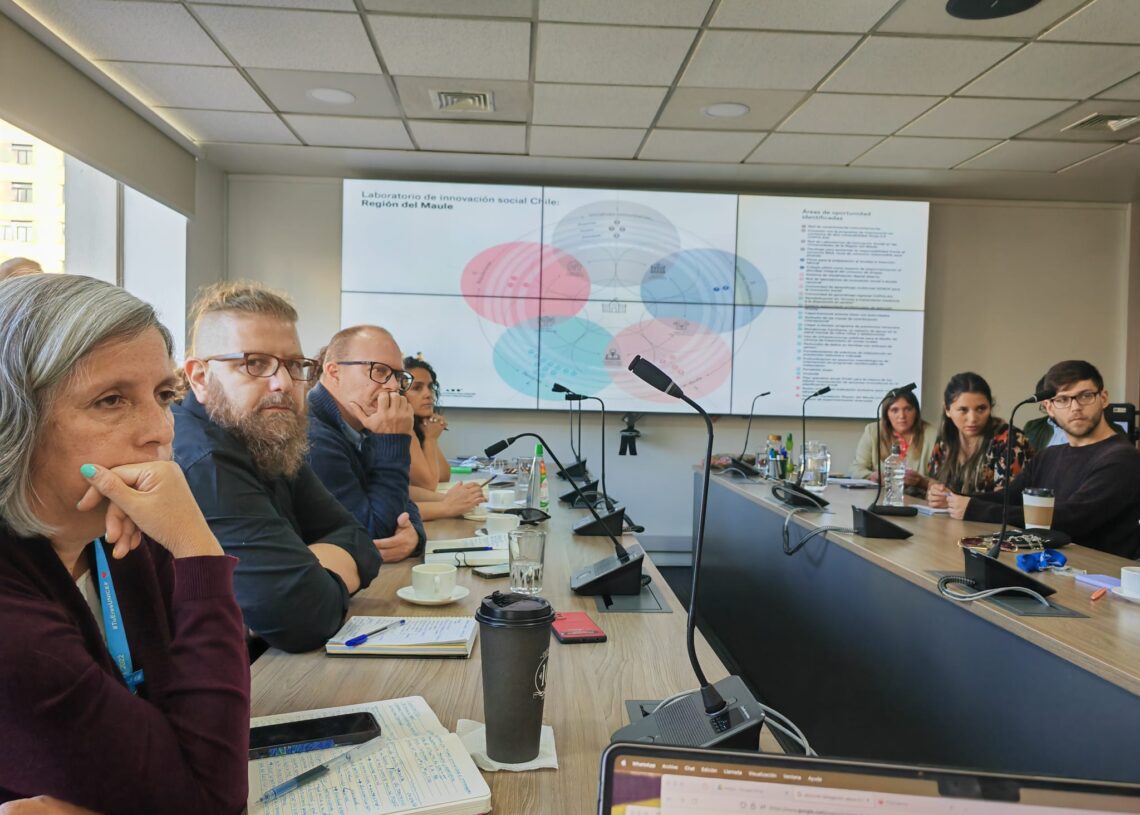The COPOLAD III Program, together with the Agirre Lehendakaria Center, a social innovation laboratory linked to the University of the Basque Country, has accompanied the Chilean National Service for the Prevention and Rehabilitation of Drug and Alcohol Consumption (SENDA) in the search for innovative strategies to address drug consumption among minors under the protection of the State.
For more than a year, organizations, experts and protagonists in the field have worked to create spaces for mapping, listening, analysis and collective interpretation of the problems faced by these children and adolescents under State guardianship, which has allowed the development of innovative prototypes of drug policies, as well as to propose the future scaling of these initiatives to broader contexts.
The prioritized prototypes, which will be implemented in the coming months, were presented on April 18 at SENDA’s headquarters in Santiago de Chile:
- Geolocation System: SENDA will develop a geolocation system for the supply of existing public services in terms of prevention and comprehensive care for problematic drug use, so that all institutions working in this field can offer an optimal service. In addition to visualizing and locating what already exists, this system will also make it possible to highlight the ‘non-supply’ or the deficiencies that the system currently has. In addition, the new digital tool is expected to automatically propose reinforcements of the connections between existing services.
- Family residences and self-care: SENDA, in collaboration with local institutions, will transform the use of two residences into an advanced experimentation center, in order to test new mental health tools for the treatment of children and adolescents (NNA). As an example, new tools for the prevention of problematic drug use, non-verbal communication, self-care systems and new supervision systems for professional teams will be tested.
- Youth Portfolio: For the first time, SENDA will promote a set of initiatives designed by young people for the development of social and labor integration competencies. Previously, these initiatives were designed without their direct participation.
- Coordination tables: SENDA will pilot the transformation of the intersectoral coordination tables of the Maule region into innovation platforms that allow addressing the most complex problems in a collaborative manner (for example, policies to reduce the harm caused by problematic drug use). In this way, any institution or public policy innovation laboratory wishing to test more innovative or disruptive solutions will be able to do so in a protected environment.
- Learning communities: SENDA will activate a learning community to support the implementation of these prototypes, but at the same time to help other teams and institutions acquire new competencies in social innovation. The goal is that this community can drive the scaling of 10 new interconnected social innovation laboratories in Chile in the coming months.
This is an initiative that seeks to create more effective drug policies in line with human rights. COPOLAD III and the Agirre Center also accompany other citizen laboratories that are developing, at different stages, their public policy prototypes in Colombia, Peru and Uruguay.






